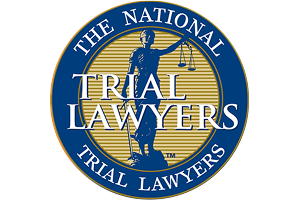Former Cook County Felony Prosecutor
Dcfs Child Abuse and Neglect
Illinois DCFS Child Abuse and Neglect Investigations Can Upend Your Family
Few experiences are more frightening for a parent than being contacted by the Illinois Department of Children and Family Services (DCFS) and told that you are under investigation for child abuse or neglect. Suddenly, your parenting decisions, your home, and your family life are placed under scrutiny. Investigators may want to interview your children, inspect your home, and speak with teachers, doctors, or relatives. In some cases, law enforcement may become involved as well. The ultimate fear for most parents is that their children could be removed from the home.
Parents respond to DCFS investigations in different ways. Some become angry or defensive. Others feel overwhelmed and frightened. Many are simply in shock and unsure what to do next. The situation can feel surreal. People who have never had any contact with the legal system suddenly find themselves dealing with investigators and complex procedures that can affect their family’s future.
Andrew M. Weisberg is a Chicago criminal defense attorney who has guided many families through DCFS investigations and related criminal matters. He understands the emotional strain these cases create and the anxiety parents feel when the government becomes involved in their family life. Although the process may feel overwhelming, the right legal guidance can help you regain control and protect your family.
Why Families Turn to Andrew M. Weisberg for Help with DCFS Investigations
A DCFS investigation is not technically a criminal case, but the consequences can be just as serious. Your rights as a parent may be restricted, and your family relationships may be disrupted. In some cases, a DCFS investigation can lead directly to criminal charges.
Because so much is at stake, choosing the right attorney is critical.
Andrew M. Weisberg provides representation that focuses on protecting both your parental rights and your legal interests. He helps clients understand what DCFS investigators are looking for and how to respond appropriately without making mistakes that could harm their case.
Knowledge of Both DCFS and Criminal Defense
DCFS investigations often overlap with criminal law. Allegations of abuse or neglect may lead to charges such as domestic battery, child endangerment, or aggravated battery. Even statements made during a DCFS interview can later be used in a criminal prosecution.
Andrew M. Weisberg’s background as a criminal defense attorney allows him to advise clients not only on how to navigate the DCFS process but also on how to protect themselves from potential criminal exposure. If criminal charges are filed, he is prepared to defend you aggressively in court.
Having one attorney who understands both DCFS procedures and criminal law can be a significant advantage when your rights and your family are at risk.
Former Cook County Prosecutor Experience
Before becoming a defense attorney, Andrew M. Weisberg served as a Cook County prosecutor. That experience gives him insight into how investigations are conducted and how evidence is evaluated.
DCFS investigators, like prosecutors, gather information and assess credibility in order to determine whether abuse or neglect occurred. Understanding what investigators look for allows Andrew to help clients present their situations clearly and accurately.
This perspective can make a critical difference when dealing with investigators, preparing for administrative hearings, or defending against criminal charges.
Clear Communication and Personal Attention
DCFS investigations are emotionally draining. Parents often feel anxious and uncertain about what will happen next. Many have never dealt with investigators or court proceedings before.
Andrew M. Weisberg believes clients deserve clear explanations and direct communication. He takes the time to explain the process, discuss available options, and help clients make informed decisions.
Clients receive individualized attention and practical guidance at every stage of the investigation. Having a knowledgeable attorney available to answer questions can reduce stress and help families move forward with confidence.
How DCFS Investigations Work in Illinois
One of the first questions parents ask is, “What happens next?” Because most people have never dealt with DCFS before, the process can seem confusing. Understanding how investigations typically proceed can help reduce uncertainty.
A Report to the DCFS Hotline
DCFS operates a 24-hour child abuse hotline where anyone can report suspected abuse or neglect. Reports may come from neighbors, relatives, or anonymous callers.
Certain professionals are legally required to report suspected abuse. These “mandated reporters” include:
• Teachers and school personnel
• Doctors and medical providers
• Social workers and therapists
• Police officers
• Childcare providers
Once a report is made, DCFS evaluates the information to determine whether an investigation should be opened.
Opening an Investigation
If DCFS determines that a report meets the criteria for investigation, an investigative specialist must begin the process quickly, often within 24 hours.
The investigator may contact the family, visit the home, or speak with the child at school. Investigators may also talk to relatives, neighbors, teachers, or medical providers.
In some situations, investigators may observe the home environment before contacting the parents in order to evaluate safety conditions.
The Investigation Process
During the investigation, DCFS typically conducts interviews with:
• The child or children involved
• Parents or guardians
• Other household members
• Teachers or caregivers
• Medical providers or counselors
Investigators will evaluate the child’s living conditions, supervision, and overall well-being.
If the investigator believes there may be safety concerns, DCFS may request that the parents agree to a Safety Plan. A Safety Plan might include temporary supervision arrangements, restrictions on contact with certain individuals, or alternative living arrangements for a parent or child.
In cases where DCFS believes a child is in immediate danger, investigators may place the child in temporary protective custody. When that occurs, a court hearing must generally take place within 48 hours to determine whether the removal will continue.
Most investigations are completed within 30 to 60 days, although DCFS can request extensions in certain circumstances.
Possible Criminal Investigations
In serious cases—particularly those involving allegations of physical abuse or sexual abuse—DCFS is required to notify law enforcement and the State’s Attorney’s Office.
This can lead to a joint investigation or a separate criminal investigation.
Because statements made during DCFS interviews can later be used in court, it is important to speak with an attorney before answering detailed questions about the allegations.
Investigation Outcomes
At the conclusion of the investigation, DCFS will make one of two findings:
Unfounded
An unfounded finding means DCFS determined there was not enough evidence to support the allegation of abuse or neglect.
Indicated
An indicated finding means DCFS determined that there was credible evidence that abuse or neglect occurred. An indicated finding may result in your name being placed on the State Central Register, which can affect employment and licensing opportunities.
You will receive written notice of the decision, and the investigator typically explains the findings as well.
Appealing an Indicated Finding
If DCFS makes an indicated finding, you have the right to request an administrative appeal hearing.
During the appeal process:
• Both sides may present evidence
• Witnesses may testify
• Documents may be introduced
• Legal arguments may be made
An administrative law judge will review the evidence and make a recommendation to the DCFS director, who issues the final decision.
Appeals are complex and often depend on careful preparation and effective presentation of evidence. Legal representation can be critical during this stage.
Protecting Yourself During a DCFS Investigation
Many parents do not realize that their actions during the early stages of an investigation can significantly affect the outcome.
Some important steps include:
• Remaining calm and cooperative without volunteering unnecessary information
• Avoiding arguments with investigators
• Seeking legal advice early
• Following court orders and safety plans carefully
• Avoiding statements that could be misunderstood or misinterpreted
Early legal guidance can help prevent mistakes that could complicate the investigation or increase the risk of criminal charges.
Contact Andrew M. Weisberg for Help with DCFS Investigations
When your family’s future is at stake, having an experienced attorney on your side can make a critical difference. Andrew M. Weisberg helps parents navigate DCFS investigations while protecting their legal rights and their relationships with their children.
Whether you are dealing with a DCFS investigation alone or facing possible criminal charges, early legal guidance can help you protect yourself and your family.
Call (773) 908-9811 to speak directly with Andrew M. Weisberg, fill out the online Case Review Form, or email andrew@amwlaw.com for confidential assistance.
Taking action early can help you protect your rights, your reputation, and your family’s future.




















